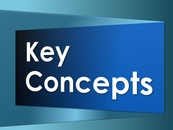|
|
Meta-bias |
|
Bias blind spot |
| ||||||||||||||
Dunning–Kruger effect |
| ||||||||
Subjective validation |
|
Self-serving bias |
|
Egocentric bias |
|
Overconfidence effect |
|
Pessimism bias |
|
Wishful thinking |
|
Selective perception |
|
Belief bias |
|
Change bias |
|
Hindsight bias
|
|
Illusion-of-truth effect |
|
Choice-supportive bias |
|
Impact bias |
|
Introspection Illusion
|
|
Illusion of Explanatory Depth
|
| ||||||||
___________________________________________________________________________________________________
Illusions of Will and Agency
Illusion of control |
|
Reactance
|
|
Restraint bias
|
|
